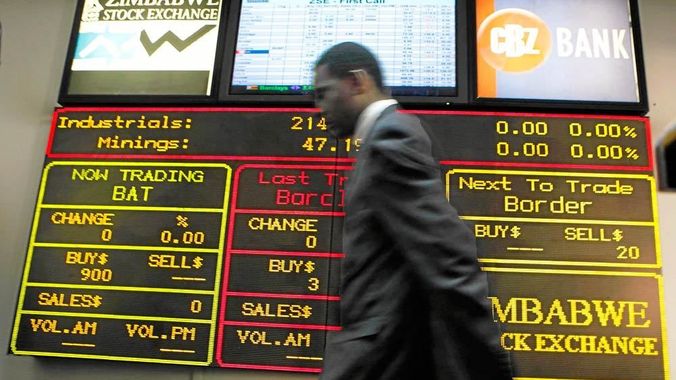The Zimbabwe Stock Exchange (ZSE) on Monday resumed trading after the government lifted a month-long suspension, with trading characterised by a dearth of market confidence attributed partly to the absence of fungible stocks.
Trading on Monday resumed with the main indices closing in the red as the market opened for sellers only while turnover was also subdued.
However, this is expected to be temporary as the majority of fund managers are liquid following the release of almost ZW$300 million of public service commission funds.
Analysts however say whilst it was too early to comment on the trades as the bourse was still finding its feet, a confidence deficit and liquidity creation have been commanding a lion’s share characterising the current sell-off since trade resumed.
A total of 2 465 300 shares traded on the bourse on Wednesday with market turnover closing the day at ZW$22,668 million.
The industrial index shed -147,07 percentage points (_2,70%) while the mining index closed off at 3,619 having shed -124 percentage points( 3,32%) on the day.
Total value of foreign sales was ZW$1 520 800 while foreign purchases were ZW$14 535,58.
Research and Investment analyst Enock Rukarwa projected a short, bearish sentiment which will ultimately lose steam due to the currency crisis and thin alternative investment options for value preservation.
“Creeping confidence deficit and liquidity creation are commanding a lion’s share characterising the current sell-off since trade resumption,” Rukarwa said.
“More so, the Old Mutual social distance has reduced buying support brightness in a big way and this dent seems visible at all statistical levels of confidence. However, in the grand scheme of things we are forecasting a short bearish sentiment which will ultimately lose steam due to the continuous currency crisis and thin alternative investment options for value preservation.”
The ZSE was suspended on June 26, two sessions away from the close of the half year and following what the government said was unprecedented speculative and destabilising behaviour, which officials claimed was contributing to broader macro-economic instability.
The investigation, according to the Ministry of Finance, revealed a strong link between price behaviour and transaction patterns of dually listed shares and the behaviour of the parallel market. The suspension resulted in a loss of at least ZW$240 million worth of trade on the bourse. The suspension was subsequently lifted on all except three dual-listed counters: Old Mutual, PPC and Seed Co International.






